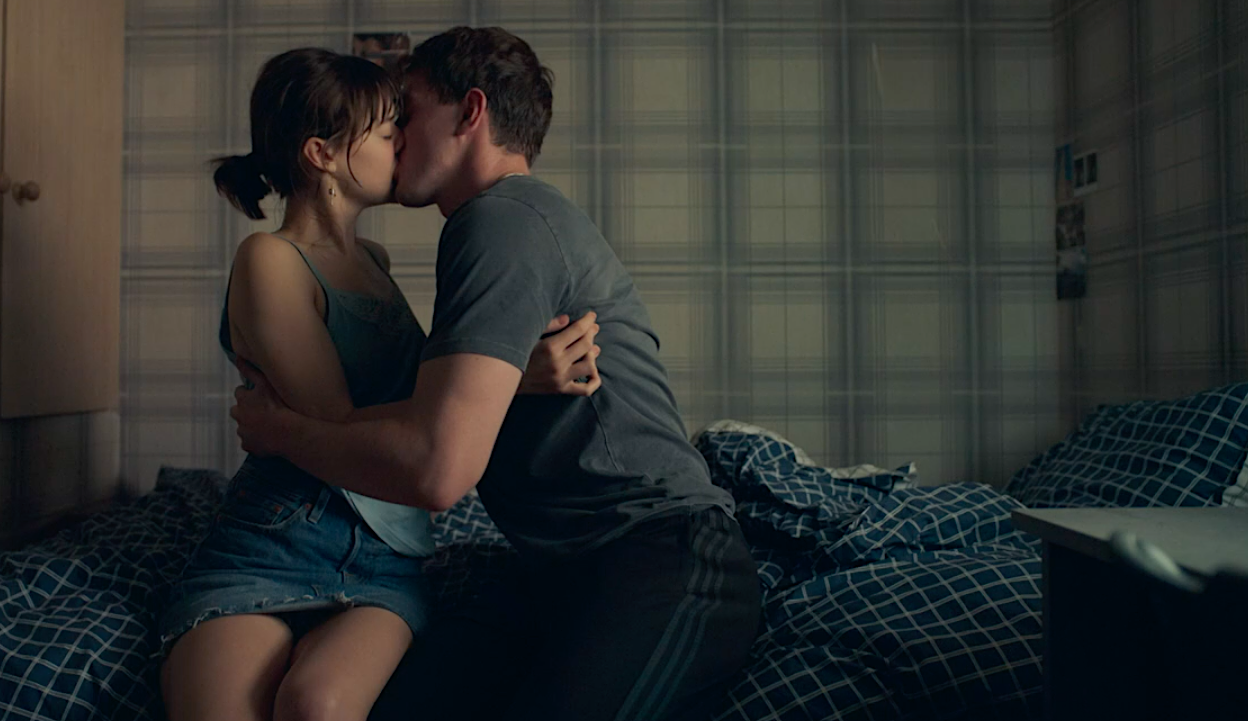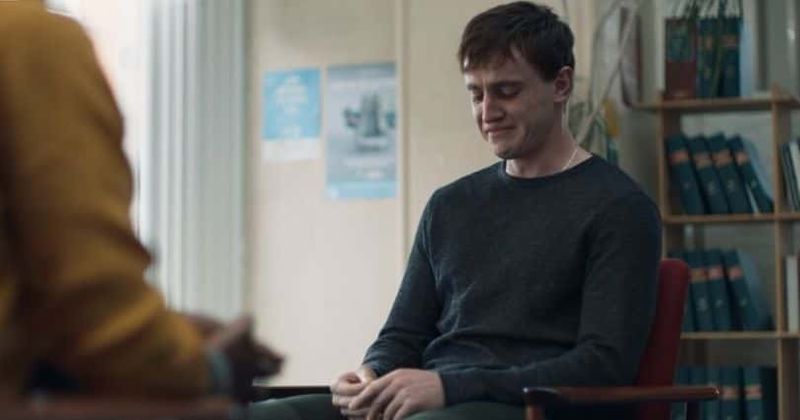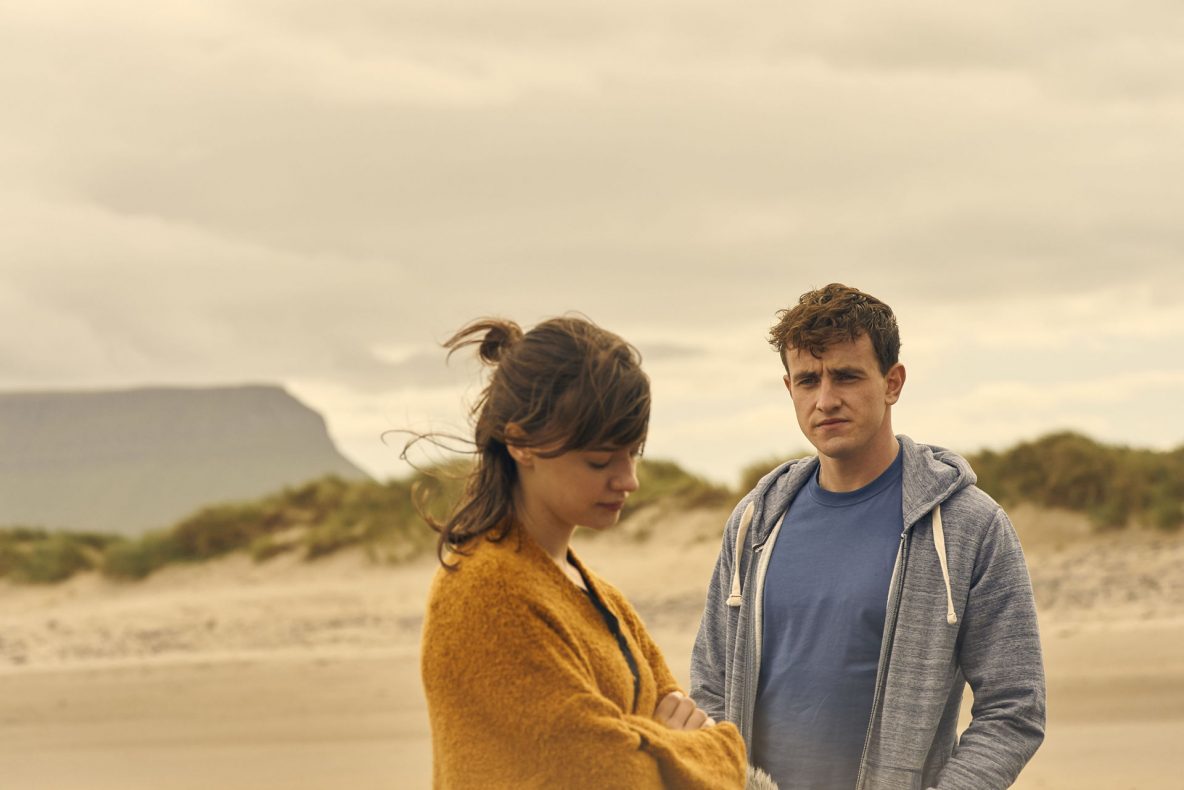NORMAL PEOPLE: A VISUAL TRIUMPH, RECOGNISING THAT IT'S OK NOT TO BE OK
A review of the TV adaptation of Sally Rooney's novel, 'Normal People'
By Lucy Ward / 18 May 2020
TW: depression / suicide / abuse
This article contains spoilers for the TV series (which you can watch here)
A lot of you will either have watched or are probably planning to watch the BBC's new series 'Normal People', and if you're not, you should.
Although I have committed the cardinal sin of not reading Sally Rooney's novel first, from which the screenplay was adapted. I have been told by a few people that it is 'one of the best tv adaptations' out there. I'll have to take their word for it until my Amazon order comes in the post.
The series has been a firm quarantine favourite of mine so far and left me experiencing emotions I didn't think were possible to feel through a 2-Dimensional screen. The relationship between Connell and Marianne is one of the most honest and realistic accounts of love, emotion and the universal personal experience of growing up as a teenager and moving into your twenties.
The show displays an intertwined web of themes; giving an authentically raw account of issues such as suicide, abuse, self-worth, depression and the pain of first love. Marianne and Connell's sex life is so passionate and powerful; it's easy to forget the fictionality of the characters. Their feelings for one another appear so intense and real, and the way their bodies move together is a visual delight on the eyes. The first time Connell and Marianne begin to have sex, Connell is sure to remind Marianne that they can stop at any time, letting her know that this is a shared consensual experience. He is aware that he will be taking her virginity and reassures her that they can stop at any point if she is in pain. The exchange shows the awkwardness that can entail with teenage sexual experience and encourages younger viewers watching to have safe, consensual sex.

Image: BBC/Hulu
The actors perfectly portray a myriad of universal, everyday emotions which is what makes the programme so raw and relatable.
Marianne is from a wealthy family, she is highly intelligent and top of the class, however, she has a problematic relationship with her family and doesn't have any friends at school. She is misunderstood; viewed as rude, argumentative and arrogant by the teachers and other students.
Connell, on the other hand, is from a less financially stable background but has an unbreakably close relationship with his mum, Lorraine. He is gorgeous (obviously), and he is in the popular group at school. This alone explores the idea that money doesn't always equate to happiness as we can see that Marianne's familial issues have a significant impact on her personal life. Rooney lets us know that there are more important things in life than money; a loving family and support network always comes up trumps.
Although it is Connell who has the friends and family who seemingly love and support him, his attempts to hide his relationship with Marianne are merely cruel. He is worried about what his friends will think of him if they know he is with someone who is seen as unpopular, highlighting his own insecurities. Ironically, when they both end up at Trinity University in Dublin, we see Marianne starting fresh and thriving in the environment. However, Connell struggles to fit in, relying on Marianne for new friends. Connell has hidden behind a facade of popularity, dashing looks and sporting abilities for so long that when it comes down to meeting new people, he really struggles.
Marianne accepts Connell into her friendship group, offering him an olive branch. It's clear that Connell and Marianne have never fallen out of love with one another. However, the way in which he treated her at school makes you question whether her accepting him back into her life is healthy or destructive.

Image: BBC/Hulu
At home, Marianne's father isn't around, and her mother shows little to no interest in her life. Her brother is a bully, projecting his own insecurities onto Marianne. Throughout the series, we see Marianne internalising the mental abuse from her childhood, through her damaging relationships. Her boyfriend, Jamie, is a middle class, chauvinistic and, I would go as far as saying, arrogant boy (you probably know the type). He's both possessive and argumentative towards her. Jamie gets dangerously close to physically assaulting Marianne during an argument they have on holiday. The likelihood is that had Connell not stepped and seen this exchange, his behaviour would have been kept under wraps by Marianne.
When Marianne moves to Sweden, she meets Lukas. Their relationship appears to be healthy until Marianne insists that she wants 'the opposite of that' when he claims he likes her. We find out that this means he is to treat her like a dehumanised, sexual object. Thankfully the screenplay does not glamorise this scenario like it does in say 50 Shades of Grey (a debate for another day) but shows it for what it is, cruel and unhealthy. Although we know that the BDSM community can be a safe and healthy way to explore sex, the series leaves out the sometimes sugar-coated portrayal of these arrangements, and we are able to empathise with Marianne's lack of self-worth until she eventually takes the difficult decision to walk away.
Various campaigns such as The FA and Heads Together's 'Heads up' campaign and See Me's 'Power of Ok' have brought the taboo topic of male mental health to light in the media.
This theme is consistently referred to throughout the 'Normal People' series. Early on, we see Connell crying down the phone to Marianne when he realises he has hurt her, challenging the societal norm that men don't cry. Now, I am aware I am not a man, so I will not assume what I have interpreted as verbatim. However, being such a prominent theme throughout the show, I feel it necessary to discuss.
Connell suffers from anxiety which becomes undeniably apparent when he goes to university. However, it is his school friend Rob's suicide which triggers Connell's downward spiral, prompting him to turn to therapy for help. When talking to the therapist about his friendship with Rob, he says: 'we never clicked on a very deep level or anything but we were friends… that stuff didn't really matter in school, because we were in the same group of friends, so, you know...' The death of Rob leads Connell to seek professional help. The fact that it took such a tragic event for him to get help himself is very telling.
Research carried out by the Mental Health Foundation says that suicide is the largest cause of death for men under 50. They also found that one in eight men are likely to have mental health issues, but due to societal expectations of masculinity, men are not as likely to seek help. 'Normal People' draws attention to the importance of speaking out before it is too late. By appealing to a younger crowd, it provides people with the opportunity to see that getting help doesn't make you weak, it will help you become stronger.

Image: BBC/Hulu
Without stating the obvious, 'Normal People' normalises everyday themes in our society for those going through their teenage years and twenties. Each character effortlessly portrays a different person most of us can either relate to or have come across in our lives. At 23, it's shown me that it's ok to feel or experience pain. It's also made me more aware of the fact that even though it may look like everyone on social media is living their best life, all the time, they're probably not. Most, if not all, people struggle with their own insecurities, toxic relationships, anxiety, death, love and pain throughout their lives. Our teenage years and our twenties are when we learn the most about ourselves through some of the pain we experience. What I feel 'Normal People' does is demonstrate that it is ok not to be ok. It's raw, unadulterated simplicity and the breadth of themes it explores is so refreshing to watch. It is the most intimate, delicate and genuine depiction of first love and heartache I have seen on TV.
Words by
Share this article

